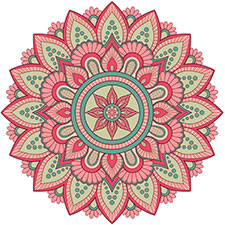Types of Anxiety Disorders
San Jose Counseling and Psychotherapy
 Suffering from chronic anxiety is one of the worst experiences a person can have because it can affect every aspect of their life.
Suffering from chronic anxiety is one of the worst experiences a person can have because it can affect every aspect of their life.
Fortunately, anxiety therapy and counseling can help you to develop strategies for coping with anxiety and can help you to look at deeper issues that may be triggering the anxiety in the first place.
Many people are actually confused about the difference between plain anxiety and an anxiety disorder. Anxiety is an abnormal apprehension and fear usually with physiological symptoms, such as sweating and an increased pulse.
Anxiety is characterized by a variety of of anxiety symptoms such as a feeling of apprehension or distress either about present or future. I distinguish between anxiety, which can be thought of as a reaction to an ambiguous or imagined danger, and fear, which is a response to a real threat.
The Difference Between Anxiety and Anxiety Disorders
Anxiety disorders are different from everyday feelings of anxiousness. However, simple anxiety can sometimes turn into a bigger problem when there are other issues, such as trauma, grief, or stress.
Without treatment, anxiety disorders can cause someone to avoid people, places, and things that remind them of the source of their anxiety. This is why getting the right anxiety treatment is so important.
People with anxiety disorders are likely to suffer from depression, and they also may abuse alcohol and other drugs in an effort to gain relief from their anxiety symptoms. Job performance, school work, and personal relationships can also suffer.
Types of Anxiety and Anxiety Symptoms
 The anxiety that someone experiences does not always meet the criteria of an anxiety disorder, but it can still interfere with quality of life to such a degree that they seek formal anxiety treatment. General anxiety symptoms include:
The anxiety that someone experiences does not always meet the criteria of an anxiety disorder, but it can still interfere with quality of life to such a degree that they seek formal anxiety treatment. General anxiety symptoms include:
- Overwhelming feelings of panic and fear
- Uncontrollable obsessive thoughts
- Ongoing nightmares
- Physical symptoms such as sweating and shaking
Of course, experiencing any of the above anxiety symptoms frequently enough might not qualify as an anxiety disorder, but still may represent enough of a problem that a seeing a psychotherapist could help. Additionally, it’s always a good idea to try to address the above forms of anxiety with psychotherapy before they get worse and turn into a full fledged anxiety disorder.
How Therapy Helps Anxiety
Only a mental health professional, such as a licensed psychotherapist can evaluate your anxiety symptoms provide anxiety treatment and diagnose a anxiety disorder. No matter what type of anxiety you feel you are suffering from, the good news is that there are genuinely effective ways to help.
Many people have cured their anxiety altogether, and others find ways to make it easily manageable. The first step is understand your anxiety and choose the most effective anxiety treatment techniques.
As a psychotherapist, I have extensive experience with all types of anxiety disorders. Working together as a team, we can develop strategies to best address whatever challenges you are experiencing. I approach each person’s anxiety with care and compassion with the goal of trying to help that person to feel better as quickly as possible.

Anxiety Counseling and Therapy for the Silicon Valley including San Jose, Los Gatos, Saratoga, Sunnyvale, Campbell, Cupertino, Los Altos, Mountain View, and Santa Clara.

